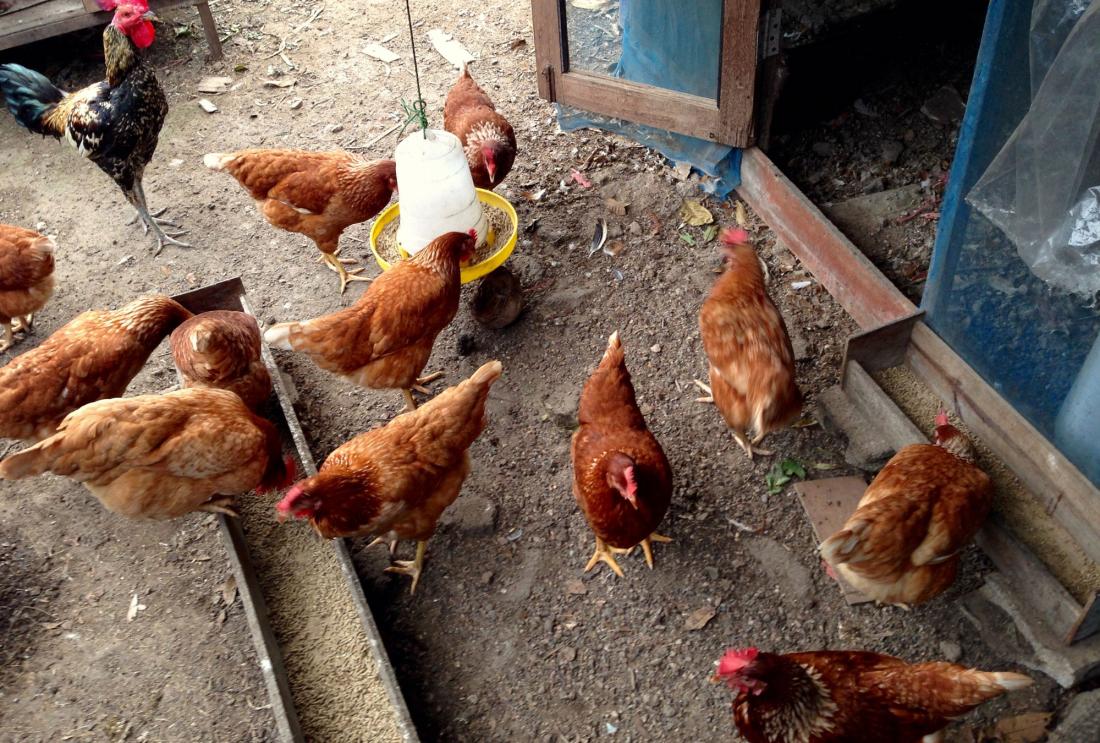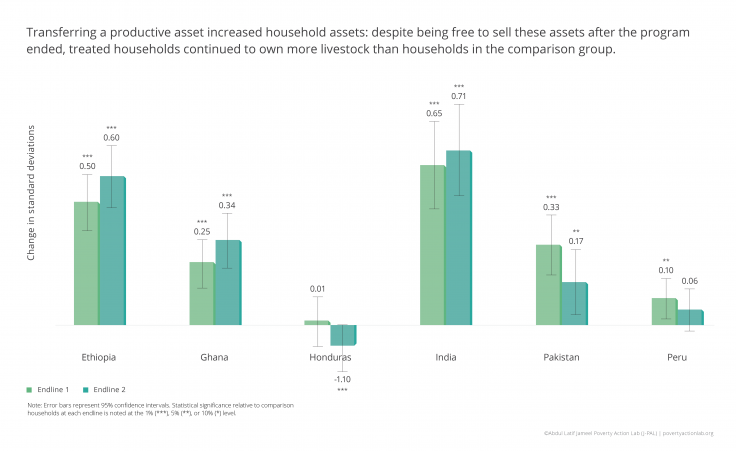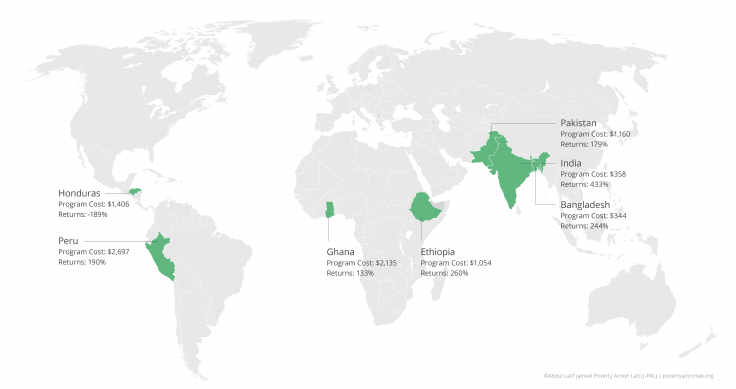Bangladesh Royal AI Club link Intel Glasgow1758-Asia-Ed3dao390
Sir Fazle Abed -top 70 alumni networks & 5 scots curious about hi-trust hi-tech
An Interview with Sir Fazle Hasan Abed, Founder & Chairman of BRAC
Scale and sustainability -how BRAC does it -and whats coming up in next generation solutions
Views: 58
Comment by chris macrae 7 minutes ago
- Delete Comment
Graduating the Ultra-Poor in Honduras
Partners:
More than one fifth of the world’s population lives on less than US$1.25 per day. While many credit and training programs have not been successful at raising income levels for these ultra-poor households, recent support for livelihoods programs has spurred interest in evaluating whether comprehensive “big push” interventions may allow for a sustainable transition to self-employment and a higher standard of living. To test this theory, in six countries researchers evaluated a multi-faceted approach aimed at improving long term income of the ultra-poor. They found that the approach had long-lasting economic and self-employment impacts and that the long-run benefits, measured in terms of household expenditures, outweighed their up-front costs. This evaluation summarizes the Honduras site, where an unexpected chicken illness destroyed most of participants’ program-related productive assets. Honduras was the only country where long-run benefits did not outweigh their up-front costs.
Policy issue
More than one fifth of the world’s population lives on less than US$1.25 per day. Many of these families depend on insecure and fragile livelihoods, including casual farm and domestic labor. Their income is frequently irregular or seasonal, putting laborers and their families at risk of hunger. Self-employment is often the only viable alternative to menial labor for the ultra-poor, yet many lack the necessary cash or skills to start a business that could earn more than casual labor.
In the past, many programs that have provided poor households with either credit or training to alleviate these constraints have not been successful at raising household income levels on average. However, in recent years, several international and local nongovernmental organizations have renewed their support for programs that foster a transition to more secure livelihoods. Combining complementary approaches—the transfer of a productive asset, training, consumption support, and coaching— into one comprehensive program may help spur a sustainable transition to self-employment. To better understand the effect of these programs on the lives of the ultra-poor, researchers coordinated to conduct six randomized evaluations in Ethiopia, Ghana, Honduras, India, Pakistan, and Peru.
Context of the evaluation
In Honduras, researchers partnered with PLAN International Honduras and Organización de Desarollo Empresarial Feminino Social (ODEF), a local microfinance institution. The study focused on poor households with children who were not generally receiving microcredit or development assistance. Those ultimately selected to participate were identified as the poorest members of the community through a participatory wealth ranking process. Within the sample, the median daily per capita consumption was 2014 PPP US$1.32, with 60 percent of households consuming less than US$1.25 per person per day. At the start of the study, around 40 percent of households reported that some adults sometimes had to skip meals, and 20 percent reported the same for children.

Details of the intervention
In partnership with PLAN International Honduras and ODEF, researchers conducted a randomized evaluation to test the impact of a two-year comprehensive livelihoods program (called the "Graduation approach”) on the lives of the ultra-poor. This approach was first developed by Bangladeshi NGO BRAC in 2002 and has since been replicated in several countries. From a sample of 2,403 households, researchers randomly assigned one-third to the treatment group, and two-thirds to the comparison group, which would not receive the program.
The intervention consisted of six complementary components, each designed to address specific constraints facing ultra-poor households:
Productive asset transfer: Participants received a one-time transfer of a productive asset valued at 4,750 Honduran Lempiras (2014 PPP US$537). Most (83 percent) participants chose chickens, while 6 percent selected pigs and 5 percent selected fish.
Technical skills training: Household were trained in running a business and managing their chosen livelihood. For example, households who selected chickens were taught how to care for them, including feed and shelter requirements.
Consumption support: Households received a one-time food transfer worth 1,920 Honduran Lempiras (2014 PPP US$217) intended to cover the six-month lean season. This differed from most other countries, where participants received weekly or monthly cash stipends.
Savings: Households were required to open an ODEF savings account and received either savings matches or direct savings transfers.
Home visits: Program staff conducted weekly home visits to provide accountability, coaching, and encouragement.
Health: Households attended health, nutrition, and hygiene trainings.
The program began in 2009 and continued until 2011. Researchers conducted a first endline survey immediately after the program concluded, as well as a second endline survey around one year later.
Results and policy lessons
Across all six countries, researchers found that the program caused broad and lasting economic impacts. Treatment group households consumed more, had more assets, and increased savings. The program also increased basic entrepreneurial activities, which enabled the poor to work more evenly across the year. While psychosocial well-being improved, these noneconomic impacts sometimes faded over time. In five of the six studies, long-run benefits outweighed their up-front costs.
General results: In Honduras, results varied significantly from overall findings: although livestock revenues increased, total and food consumption did not change, and asset ownership declined. Researchers believe this was primarily due to the fact that a large fraction of chickens, which most households received as their productive asset, died due to illness. At both the first and second endline surveys, treatment households reported an increase in revenue coming from chickens. However, most of the chickens had died by the time of the second endline survey, leading to a decline in overall assets owned relative to the comparison group, and there was no difference in consumption among households who participated in the Graduation program and those that did not.

Cost-benefit analysis: As the program did not have lasting positive impacts on consumption and asset holdings, Honduras was the only evaluated country in which the program’s costs outweighed participant benefits. Researchers calculated total implementation and program costs to be US$1,335 per household (2014 PPP US$3,090). Estimated (lack of) benefits for four years of consumption and assets declines amounted to a loss of 2014 PPP US$6,118 per household, representing an overall negative return of 198 percent.

Banerjee, Abhijit, Esther Duflo, Nathanael Goldberg, Dean Karlan, Robert Osei, William Parienté, Jeremy Shapiro, Bram Thuysbaert, and Christopher Udry. 2015. “A Multi-faceted Program Causes Lasting Progress for the Very Poor: Evidence from Six Countries.” Science 348(6236), doi: 10.1126/science. 1260799.
Views: 61
© 2025 Created by chris macrae.
Powered by
![]()

http://www.econ.yale.edu/~cru2/pdf/Science-2015-TUP.pdf
brac ultra poor program replication
http://dx.doi.org/10.1126/science.1260799
Ethiopia, Ghana, Honduras, India,
Pakistan, and Peru